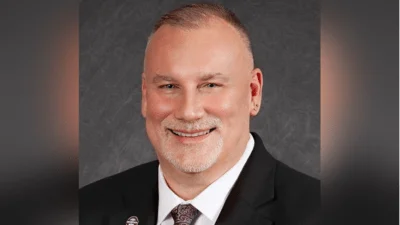Sen. Terri Bryant (R-Murphysboro) says sexual assault bill has flaws | senatorbryant.com
Sen. Terri Bryant (R-Murphysboro) says sexual assault bill has flaws | senatorbryant.com
Illinois state Sen. Terri Bryant (R-Murphysboro) believes a bill that makes changes to the Criminal Identification Act takes the state "back 10 steps" in making sure victims of abuse are protected.
Bryant spoke out against the Democrat-backed legislation in a May 12 Facebook post.
"Yesterday, Senate Democrats passed Senate Bill 333, which would delay the process of notifying and reporting the sexual assault of survivors 13 years and older to law enforcement," Bryant wrote in her post. "On multiple levels, this is simply a bad bill. This legislation enables abusers, endangers local communities, and potentially prevents justice from being served."
In the post, Bryant shared a video of her speech about Senate Bill 333 she made on the Senate Floor. In her statements, Bryant pointed to real-life examples that highlighted what she says are flaws in the proposed legislation. She called the bill "regressive" and said it moved backward in the push to protect victims of abuse.
"It’s preposterous. Absolutely preposterous that children should be allowed to be in the hospital for sexual assault without police involvement in any scenario," she said on the Senate floor. "And even though this bill has been amended so that 13-year-olds can make a decision, over and over and over again in this body, the hypocrisy of saying brain science comes into effect- and now saying a 13-year-old can make the decision of whether they want to notify the police."
Sen. David Koehler (D-Peoria), the bill's sponsor, filed the legislation on February 2, 2023. It establishes procedures for doctors and other medical facility staff for reporting sexual assault if the victim, who is 13 years of age or older, seeks medical treatment.
Under Senate Bill 333, if a sexual assault survivor agrees to notify police, medical staff must report it to law enforcement as soon as they're able to do so. If the crime happened outside of the jurisdiction, the officer taking the report must forward the report to the agency with jurisdiction so it can be properly investigated. The legislation also stated, "the health care provider must advise the survivor about the options for timing of the law enforcement notification, ask the survivor if the survivor has been threatened, and offer to connect the survivor with a rape crisis center for safety planning, if appropriate. If a sexual assault survivor does not consent to notification being made as soon as treatment permits, notification to the law enforcement agency having jurisdiction must be delayed until after the sexual assault survivor leaves the outpatient treatment location, but no later than 24 hours after the sexual assault survivor leaves."
“The most important thing we can do for survivors of sexual assault is make them feel safe,” Koehler said in a statement after the bill passed. “Many survivors know who assaulted them personally. By giving survivors the choice of when and how they would like to report their case to the authorities, we are giving them the ability to safely seek justice.”






 Alerts Sign-up
Alerts Sign-up